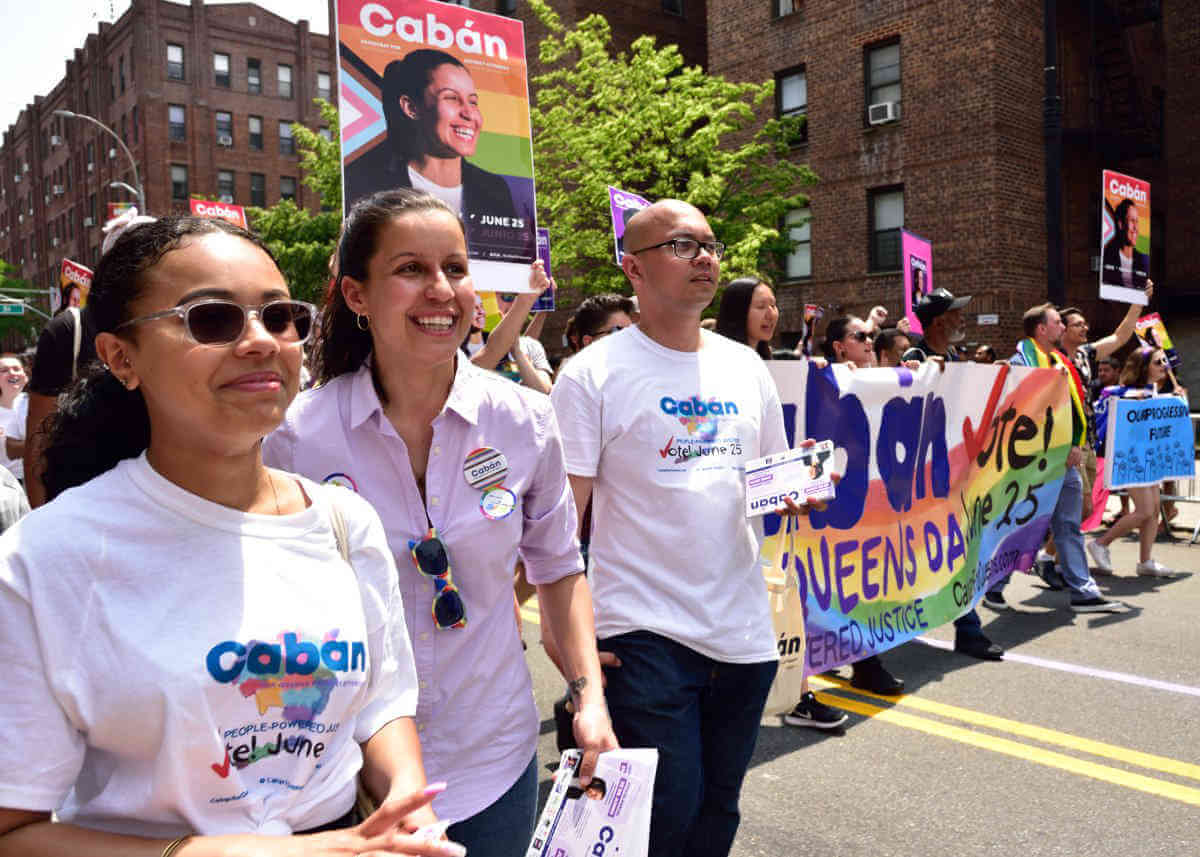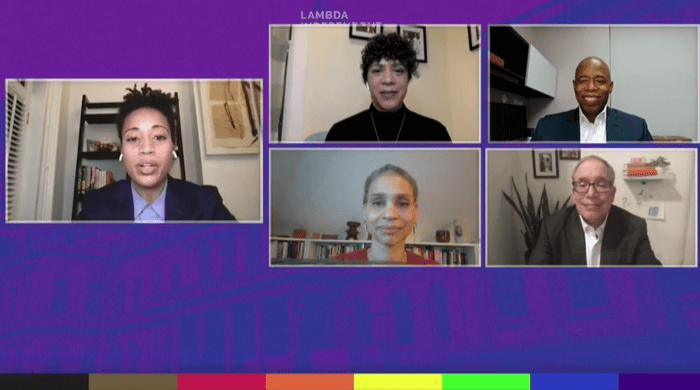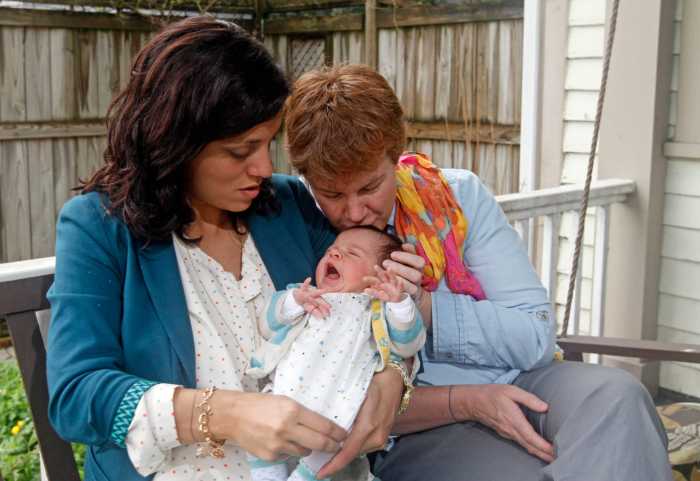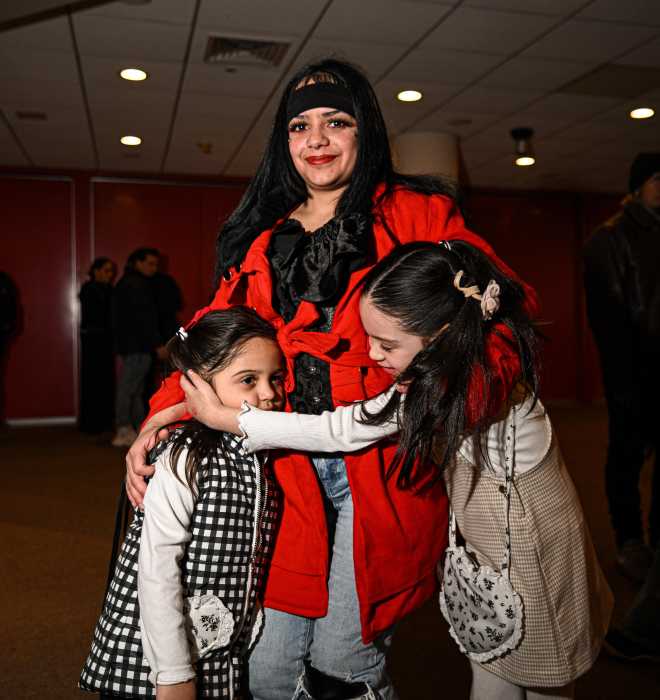Tiffany Cabán’s heartbreaking defeat in the 2019 Democratic primary for Queens district attorney marked a setback for intersectional queer representation in local government. The grassroots campaign reached its apex on election night when it appeared as if Cabán pulled off a major victory, but it dipped to devastating lows by the time all the votes were counted.
Even after Cabán narrowly lost to Melinda Katz, who went on to win the general election and became the borough’s top prosecutor, it seemed like a matter of when, not if, Cabán would run for something else at some point.
She knew she lit a spark in the city, let alone Queens — a spark that reflected the hunger for change in the criminal justice system in a borough where, like in many other places, trans women, people of color, and queer folks in general have long been subjected to discriminatory policing and mistreatment.
Cabán drew national attention in the process, attracting endorsements from US Senators Bernie Sanders of Vermont and Elizabeth Warren of Massachusetts, as well as Congressmember Alexandria Ocasio-Cortez of the Bronx and Queens. And evidence of Cabán’s massive support in the queer community was on full display at Queens Pride in 2019 when many attendees were donning Cabán T-shirts and her campaign flyers were plastered on nearby storefronts.
Following the election, Cabán eventually settled into a role with the Working Families Party, and late last summer, she jumped back onto the campaign trail when she officially kicked off her campaign for City Council in the 22nd District, which encompasses Astoria, East Elmhurst, Jackson Heights, and Woodside, as well as Rikers Island.
“I’m going to be real. It took a minute,” Cabán said during an interview with Gay City News. “After my race, a lot of folks asked me, ‘what are you running for next?’”
Cabán, a former public defender, said the convergence of the coronavirus crisis and last summer’s mass protest movement and budget fight helped fuel her desire to jump in the race. But those were not the only factors influencing her decision. Her work as an attorney brought her to witness the sobering injustices facing New Yorkers in the criminal justice system: As an example, she represented a trans woman who could not afford bail and was thrown into a jail with men. She started to grow facial hair after authorities withheld her hormones, representing a striking display of medical mistreatment.
Inhumane conditions that Cabán saw first-hand became part of the motivation behind her City Council campaign’s lengthy public safety plan that seeks to shift resources from the NYPD into areas of need in communities. It includes calls for non-police traffic safety, violence prevention services, community mediation centers — where multiple city agencies would work to help mediate disputes — as well as trained crisis intervention teams that could respond to domestic, sexual, community-based, or youth violence conflicts.
That plan, she said, is based on her lived experience as a queer Latina woman from a working class family, her work as a public defender, and her organizing efforts in local communities.
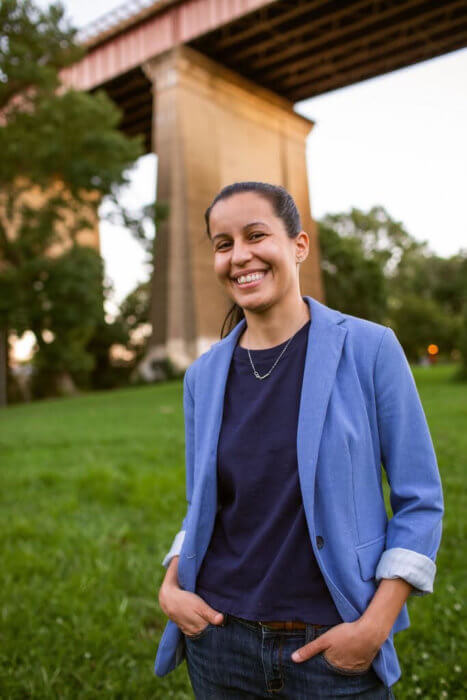
“It is a true labor of love,” she said. “We’re out here demanding that we divest from policing and invest in our communities.”
Part of that plan includes strong support for comprehensive sex work decriminalization — a key LGBTQ issue in New York City — and shifting the government’s focus from criminalizing sex workers to supporting them, including those who are working by choice, circumstance, or coercion. Under her plan, sex workers who are experiencing abuse or are victims of trafficking could be referred to “Family Support” services that could provide trauma, housing, and healthcare assistance.
“We have to create an environment where [sex work] is destigmatized,” she said.
When asked about Layleen Xtravaganza Cubilette-Polanco, an Afro-Latinx trans woman who died at Rikers Island after she was neglected by jail authorities during a health emergency, and Kawaski Trawick, a queer Black man who was shot and killed by police at his home in the Bronx, Cabán opted to focus specifically on Polanco — who was in jail because she could not afford $500 bail. Polanco’s tragic death drew attention from across the city, but it hit even closer to home for Cabán since Rikers falls within her own district.
“The system failed Polanco well before she even crossed the criminal legal system,” Cabán said as she emphasized the need to “talk about folks who have died on Rikers or while incarcerated.”
In addition to community safety plans, Cabán’s campaign is also placing a focus on a “Green New Deal for NYC,” which she insists would create at least 100,000 green jobs and bring about a “care-based economy” heavy on investing in infrastructure and addressing systemic environmental racism in the city.
Throughout the campaign, Cabán said she has formulated her platform in part by listening to community-based feedback from the district, which was previously represented by Costa Constantinides until his resignation last month. She has a feedback form on her campaign site, hosts Instagram Live sessions to answer questions from the community, and once held a bike ride event that culminated in an “input session.”
“It is so important that we are listening to the people in our community,” she said. “We’re going to work together on things even if we don’t agree on 100 percent of things. I will fight with you and for you.”
Now 34 years old and in the midst of her second campaign, Cabán acknowledges she did not know “my ass from my elbow” when she first conceived the idea to run for office the first time around. She learned a great deal about electoral politics, which laid the groundwork for what would eventually be a run for City Council. During her 2019 campaign she told the Jim Owles Liberal Democratic Club that she said her office would support “the legalization” of sex work — a position she has since adjusted to reflect the understanding among advocates that decriminalization, not legalization, is the best path forward.
But now, nearly two years after she received nearly 34,900 votes in a borough-wide race, she is approaching this election with much more experience under her belt — “I’ve whipped votes at every level of government at this point,” she said — and rather than crisscrossing an entire borough, she is zeroing in on her own district while still maintaining the mindset that, if elected, she would wield influence at the citywide level.
“Local does not mean small,” she said. “I am going to run to make sure we are filling potholes and trees, but also learning to be a legislator and setting a budget in the most powerful municipal government in the entire country.”
Cabán has plenty of competition in the race, but as it stands, the city’s Campaign Finance Board shows Cabán leading the way with an estimated balance of $170,487. Leonardo Bullaro is trailing close behind with $162,576 on hand.
Among Cabán’s supporters include an impressive base of queer New Yorkers and political clubs. Although the Lesbian and Gay Democratic Club of Queens curiously snubbed her in favor of Evie Hantzopoulos, two citywide LGBTQ political clubs — the Stonewall Democratic Club of New York City and the Jim Owles Liberal Democratic Club — have endorsed Cabán. She is also backed by an impressive slate of LGBTQ individuals, including Brian Romero, Jawanza James Williams, Carlyn Cowen, Elisa Crespo, Jared Trujillo, Daniel Puerto, District Leaders Zachariah Boyer and Émilia Decaudin of Queens and Samy Nemir Olivares of Brooklyn, Queens Councilmember Jimmy Van Bramer, Queens Assemblymember Jessica González-Rojas, Brooklyn State Senator Jabari Brisport, and Rod Townsend, who was running in the same competition before exiting the race last year.
“[Their support] means the world to me,” Cabán said. “When I look at that group and the amount of love in their fight, it is just a beautiful, powerful thing to stand shoulder to shoulder with them.”
Cabán isn’t just popular in queer political circles. She has played in several queer sports leagues and managed softball teams. She credits her sports side to her brother, who she said helped her play sports ranging from basketball to baseball from a young age — and she looks back on those times as “some of the happiest memories of my childhood.” She even recalls when her brother got her a pair of basketball shoes for the first time.
“I am an athlete through and through,” she said. “It’s another reason I became a public defender. I loved being in a courtroom and it’s like being on a playing field all over again. There is an opponent, a referee, and a goal.”
Cabán’s goal is in sight and time is ticking in the fourth quarter. Next month — just days before Pride Sunday in New York City — she will have an opportunity to overcome her 2019 loss when she squares off in the Democratic primary on June 22.
To sign up for the Gay City News email newsletter, visit gaycitynews.com/newsletter

